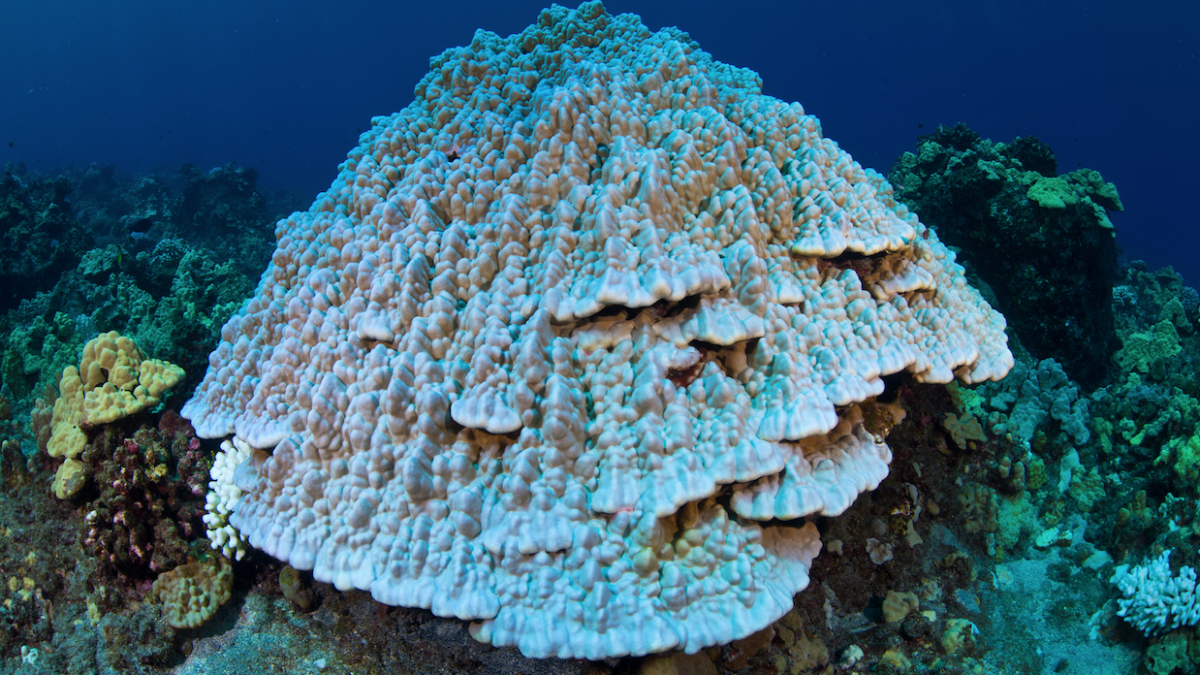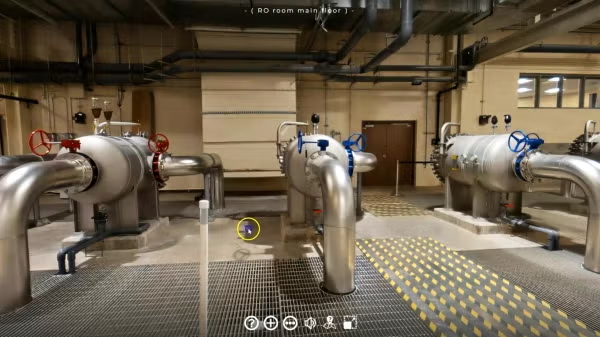Sea surface temperature has a big impact on coral outplant survival

A bleached coral reef in Hawaii. Without rapid intervention, coral reefs will continue to degrade, resulting in what may be the first human-caused loss of an entire biome. Credit: Greg Asner, director of the Center for Global Discovery and Conservation Science
Global average sea surface temperatures have risen at unprecedented rates for the past three decades, with far-reaching consequences for coral reefs. Today, the majority of coral reefs are surviving at their upper thermal limit and an increase in just one degree Celsius lasting longer than a few weeks can lead to coral bleaching and death. With projections of ocean warming expected to continue to rise by as much as 1.5 degrees Celsius in this century, scientists are in a race against time to find new solutions to sustain reefs.
One promising solution is “coral gardening” or outplanting, a method where coral fragments grown in a nursery are transplanted onto degraded reefs. Successful outplanting raises coral biomass and helps to restore reef function. Each year, thousands of corals are outplanted using this method.
While effective, the technique is both time-consuming and expensive; the cost of reef restoration can reach $400,000 per hectare and success isn’t always guaranteed. If the newly settled corals are exposed to stressors such as algae outbreaks, unfavorable water chemistry, and/or temperature fluctuations, they can quickly deteriorate and die. With temperature being one of the most fundamental factors determining coral health and survival, understanding its role in outplanting survival is crucial to restoration success.
In a study published June 10 in Environmental Research Letters, researchers from Arizona State University’s Center for Global Discovery and Conservation Science have shown that coral outplant survival is likely to drop below 50% if sea surface temperatures exceed 30.5 degrees Celsius and that survival rates can also be predicted by considering temperature conditions in the year prior to outplanting.
“Coral reefs experience a global, annual maximum sea surface temperature of about 29.4 degrees Celsius," said Shawna Foo, lead author and postdoctoral researcher at the center. "Our study reveals that increasing the maximum temperature a site experiences by one degree higher reduces the chance of coral outplant survival to below 50%. We highlight the importance of considering temperatures a site has previously experienced to optimize outplant outcomes."
The study was based on an analysis of hundreds of coral outplanting projects worldwide between 1987 and 2018. The team assessed data on coral survival rates, outplant locations and dates, along with sea surface temperature data extracted from satellites to determine the effects of temperature on outplant survival. They also considered whether temperatures from the year prior to coral outplanting showed similar patterns. The results of their analysis help to determine if a restoration site is appropriate or not.
"Although sobering for reef conservationists and managers, our findings provide a critical compass as to where reef restoration efforts can have their greatest impact in the future. Reef restoration is just now turning from a cottage industry to a global enterprise, and this needs to happen in concert with the changing global geography of ocean temperature," said Greg Asner, co-author of the study and director of center.
The study was supported by the John D. and Catherine T. MacArthur Foundation.
More Environment and sustainability

2 ASU faculty elected as AAAS Fellows
Two outstanding Arizona State University faculty spanning the physical sciences, psychological sciences and science policy have…

Homes for songbirds: Protecting Lucy’s warblers in the urban desert
Each spring, tiny Lucy’s warblers, with their soft gray plumage and rusty crown, return to the Arizona desert, flitting through…

Public education project brings new water recycling process to life
A new virtual reality project developed by an interdisciplinary team at Arizona State University has earned the 2025…

